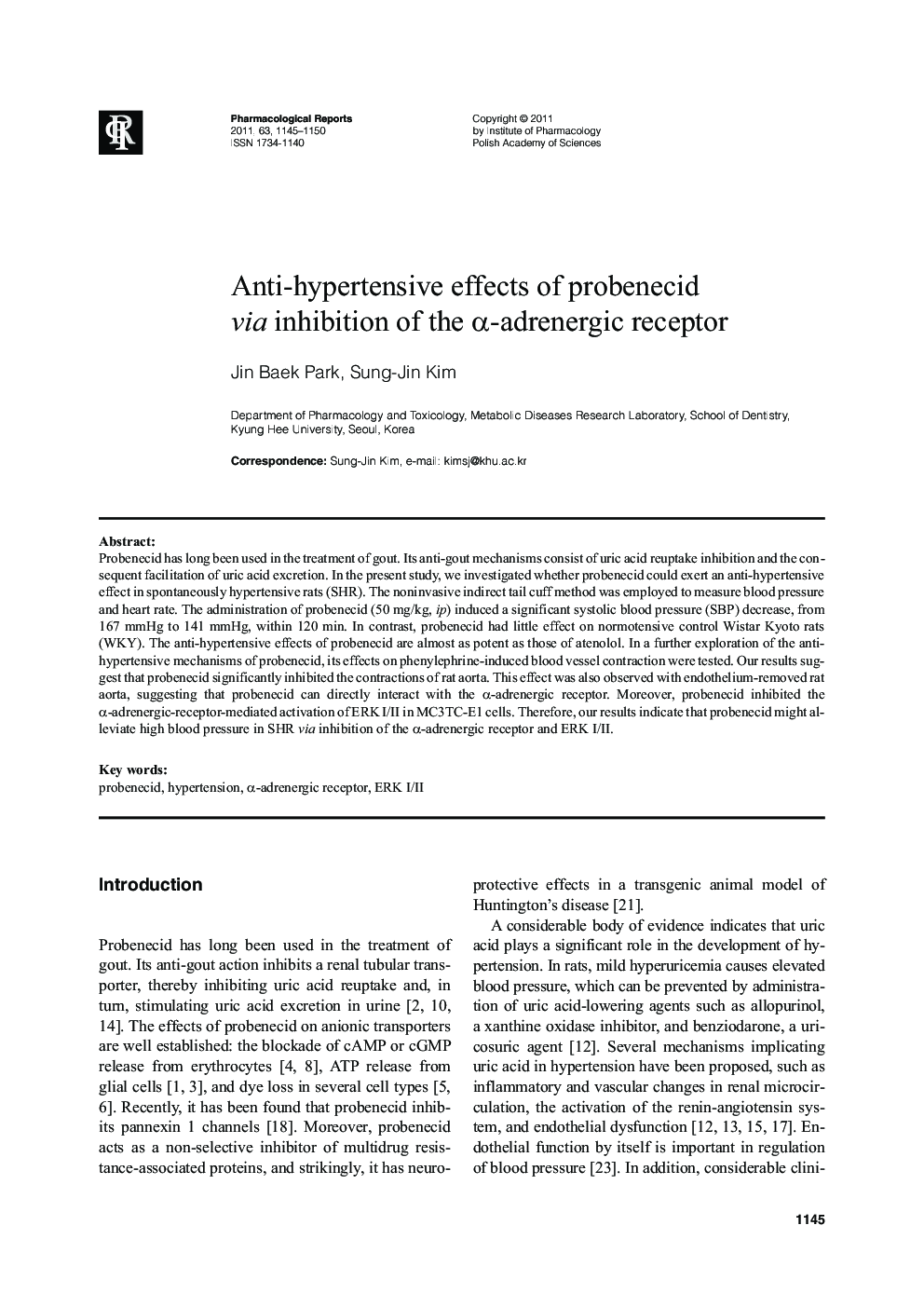| کد مقاله | کد نشریه | سال انتشار | مقاله انگلیسی | نسخه تمام متن |
|---|---|---|---|---|
| 2012441 | 1067031 | 2011 | 6 صفحه PDF | دانلود رایگان |

Probenecid has long been used in the treatment of gout. Its anti-gout mechanisms consist of uric acid reuptake inhibition and the consequent facilitation of uric acid excretion. In the present study, we investigated whether probenecid could exert an anti-hypertensive effect in spontaneously hypertensive rats (SHR). The noninvasive indirect tail cuff method was employed to measure blood pressure and heart rate. The administration of probenecid (50 mg/kg, ip) induced a significant systolic blood pressure (SBP) decrease, from 167 mmHg to 141 mmHg, within 120 min. In contrast, probenecid had little effect on normotensive control Wistar Kyoto rats (WKY). The anti-hypertensive effects of probenecid are almost as potent as those of atenolol. In a further exploration of the anti-hypertensive mechanisms of probenecid, its effects on phenylephrine-induced blood vessel contraction were tested. Our results suggest that probenecid significantly inhibited the contractions of rat aorta. This effect was also observed with endothelium-removed rat aorta, suggesting that probenecid can directly interact with the α-adrenergic receptor. Moreover, probenecid inhibited the α-adrenergic-receptor-mediated activation of ERK I/II in MC3TC-E1 cells. Therefore, our results indicate that probenecid might alleviate high blood pressure in SHR via inhibition of the α-adrenergic receptor and ERK I/II.
Journal: Pharmacological Reports - Volume 63, Issue 5, September–October 2011, Pages 1145–1150